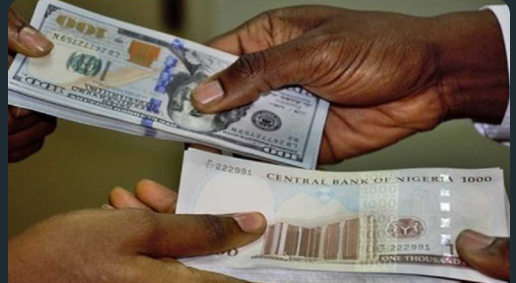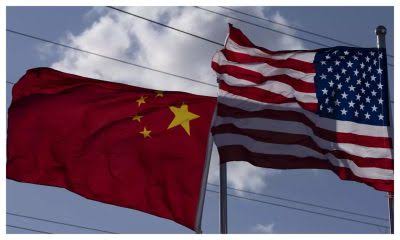Economy
‘Our advantage may not last,’ US tech investors fear amid emergence of China’s Deepseek

The emergence of the DeepSeek chatbot has sent Silicon Valley into a frenzy, with calls to go faster on advancing artificial intelligence and beat communist-led China before it is too late.
California tech investors have usually kept their involvement in politics low key, generally supporting centrist politicians who don’t get in the way of their innovations and business plans.
But the AI revolution, and the potential ability of China to pose a direct threat to US dominance, has unnerved tech investors, who are now calling on the Donald Trump-led US government to help them take the battle to their Chinese rivals.
“It’s a huge geopolitical competition, and China’s running at it super hard,” warned Facebook titan Mark Zuckerberg on the Joe Rogan podcast.
He noted that DeepSeek is “a very advanced model” and that it censors historical events like Tiananmen Square, arguing that “we should want the American model to win.”
Google, though not specifically mentioning DeepSeek, on Wednesday said the United States must take urgent action to maintain its narrow lead in artificial intelligence technology or risk losing its strategic advantage.
“America holds the lead in the AI race — but our advantage may not last,” it warned, calling for government help in AI chip production, streamlining regulations and beefing up cybersecurity against national adversaries.
The emergence of DeepSeek’s lower cost breakthrough particularly threatens US-based AI leaders like OpenAI and Anthropic, which have invested billions in developing leading AI models.
OpenAI raised alarms Tuesday about Chinese companies attempting to copy their advanced AI models through distillation techniques, announcing plans to deepen collaboration with US authorities.
OpenAI investor Josh Kushner criticized so-called “pro-America technologists” who praise what he claims is Chinese AI built with misappropriated US technology.
Palmer Luckey, a Trump-supporting tech entrepreneur, suggested DeepSeek’s success was being amplified to undermine Trump’s policies.
– ‘Fall behind’ –
Despite US government efforts to maintain AI supremacy through export controls on advanced chips, DeepSeek has found ways to achieve comparable results using authorized, less sophisticated Nvidia semiconductors.
The app’s popularity has soared, topping Apple’s download charts, with US companies already incorporating its programming interface into their services.
Perplexity, an AI-assisted search engine startup, has begun using the technology while claiming that it keeps user data within the US.
The tech community can count on Washington, where concern about China has achieved rare bipartisan consensus.
Last year, Republicans and Democrats passed a law ordering the divestment of TikTok, a subsidiary of the Chinese group ByteDance.
“If America falls behind China on AI, we will fall behind everywhere: economically, militarily, scientifically, educationally, everywhere,” the US Senate’s top Democrat Chuck Schumer said Tuesday.
“China’s innovation with DeepSeek is jarring, but it’s nothing compared to what will happen if China beats the US on the ultimate goal of AGI, artificial general intelligence. We cannot, we must not allow that to happen.”
Representative Mark Green, a senior Republican said “let’s set the record straight — DeepSeek R1 is another digital arm of the Chinese Communist Party.”
However, some argue this aggressive approach may backfire, given Silicon Valley’s reliance on Chinese talent.
Nvidia researcher Zhiding Yu highlighted this concern on X, noting how a Chinese intern from his team joined DeepSeek in 2023.
“If we keep cooking up geo-political agendas and creating hostile opinions to Chinese researchers, we will shoot ourselves in the foot and lose even more competitiveness.”
Economy
Mobile Money transactions hit $1.68trn in one year

Mobile money platforms processed about 108 billion transactions valued at $1.68 trillion in 2024, according to GSMA’s ‘State of the Industry Report on Mobile Money 2025’ report released Tuesday.
GSMA’s mobile money programme works to advance the mobile money ecosystem of communities that lack access to more traditional banking services. The global body for telecom operators stated that mobile money transaction volumes increased by 20 percent year-on-year, while transaction values grew by 16 percent, up from a 13 percent increase in 2023.
“Transaction volumes and values for mobile money accounts experienced robust double-digit growth in 2024. Approximately 108 billion transactions, totalling over $1.68 trillion, were processed through mobile money accounts in 2024,” the report said.
Vivek Badrinath, director general of GSMA, said mobile money has emerged as a powerful driver of financial inclusion and economic growth. “Its continued success depends on supportive regulatory environments that promote innovation, accessibility, and help unlock the full socio-economic potential.
“To ensure mobile money remains accessible, affordable, and safe, it is vital for governments and regulators to work with financial service providers to support financial literacy programs, empowering underserved populations and opening new opportunities for financial decision-making,” he said.
The report stated that the GDP of countries with mobile money services increased by approximately $720 billion by 2023, reflecting a 1.7 percent increase. In Sub-Saharan Africa, mobile money added about $190 billion to GDP in the same year.
“The region remains the leader in mobile money, with active accounts increasing notably in East and West Africa. East Africa was highlighted for its growth in active accounts in 2024, followed by Southeast Asia and West Africa. Countries in East Asia-Pacific, including Cambodia, Fiji, the Philippines, and Vietnam, also demonstrated growth, attributed to favorable regulatory conditions.”
GSMA noted that mobile money providers in East Asia-Pacific have evolved to offer comprehensive financial services, with 44 percent providing credit services by June 2024. However, challenges persist, particularly for women, as eight of the 12 surveyed countries reported disparities in mobile money ownership based on gender.
“Nearly 60 percent of mobile money providers are addressing these gaps by implementing digital literacy initiatives,” the report said.
Mobile money reached two significant milestones in 2024, surpassing two billion registered accounts and over half a billion active monthly users across the globe. The industry took 18 years to achieve one billion registered accounts and 250 million active users from 2001, but this has doubled in the last five years.
Economy
SEE Black Market Dollar To Naira Exchange Rate In Lagos, FCT, April 7th 2025

The local currency (abokiFx) opened at ₦1,560.00 per $1 at the parallel market, otherwise known as the black market, today, Monday, 7 April 2025, in Lagos, Nigeria, after it closed at ₦1,550.00 per $1 on Sunday, 6 April 2025.
Black market dollar to naira exchange rate today, 7 April 2025, also known as Aboki forex, can be accessed below.
NOTE: The exchange rate changes hourly. It depends on the volume of dollars available and the Demand. What this means is that…you can buy or sell 1 dollar at a certain rate and the price can change (high or low) within hours.
The official naira black market exchange rate in Nigeria today, including the Black Market rates, Bureau De Change (BDC), and CBN rates. Please note that the exchange rate is subject to hourly fluctuations influenced by the supply and demand of dollars in the market. As of now, you can purchase 1 dollar at a certain rate now however, it’s important to remember that the rate can shift (either upwards or downwards) within hours.
Economy
Crude prices slump to $65 first time since 2021

Oil prices plunged this week to $65 per barrel as the United States import tariffs and an unexpected OPEC+ supply hike erased $10 per barrel from global benchmarks.
The price appreciated last week when US President Donald Trump imposed tariffs on any country that buys crude from Venezuela.
However, oil prices turned around the corner as of Friday, with Brent falling to $65, the first time since 2021.
According to oilprice.com, the combined effect of Trump’s import tariffs, OPEC+’s inopportune decision to speed up the unwinding of production cuts, and China’s retaliatory actions wiped off $10 per barrel from global oil prices, “with ICE Brent falling below $65 per barrel for the first time since August 2021.”
The US West Texas Intermediate crude futures lost $4.96, or 7.4 per cent to end at $61.99.
“Seeing backwardation barely change compared to the beginning of the week, one could assume that US tariffs are the defining factor for the price change. Nevertheless, this week will not go down well in the history of oil markets,” oilprice.com reports.
China’s retaliatory tariffs on US goods have escalated a trade war that has led investors to price in a higher probability of recession.
China, the world’s top oil importer, announced it will impose additional tariffs of 34 per cent on all US goods from April 10.
According to Reuters, nations around the world have readied retaliation after Trump raised tariffs to their highest in more than a century.
Aside from the tariffs, another factor that further pressured oil prices was the Organisation of the Petroleum Exporting Countries and Allies’ decision to advance plans for output increases.
The group now aims to return 411,000 barrels per day to the market in May, up from the previously planned 135,000 bpd.
-

 News21 hours ago
News21 hours agoOERAF held memorial lecture on conflict resolution, security/safety of community in Nigeria
-

 News7 hours ago
News7 hours agoUS revokes more than 500 foreign student visas
-

 News6 hours ago
News6 hours agoBanditry:” I was chained for 32days while in their den, killed my wife as I watch-Nat’l Assembly DD narrates experience
-

 News21 hours ago
News21 hours agoHoR Minority Caucus decries killings in Plateau, Benue states, urges immediate presidential decisive actions
-

 News8 hours ago
News8 hours agoIbas picks administrators for 23 Rivers LGs(SEE list)
-

 News13 hours ago
News13 hours agoBandits have seized control of 64 communities in Plateau – Gov Muftwang
-

 Economy13 hours ago
Economy13 hours agoMobile Money transactions hit $1.68trn in one year
-

 News8 hours ago
News8 hours agoSAD! Roof Collapses At Nightclub Kills 44, Including province Gov















